Becoming 'Unbreakable': How Richard Wilcox went from couch to 100-mile ultra runner in a year
Suffering from PTSD, addiction and weight issues, Richard turned his life around after watching a documentary on the Western States 100
Did you know there’s more than one way to support ‘Running Tales: After all is said and run’?
As well as subscribing to this newsletter - paid if possible please 😉 - and telling everyone about it, our podcast and the YouTube channel, you can help us in the form of cold, ‘hard’ caffeine.
By which we mean you can ‘Buy Me A Coffee’ to support this project and help us continue to tell the stories of everyday runners who extraordinary things.
Thank you, Craig and Michelle ❤️
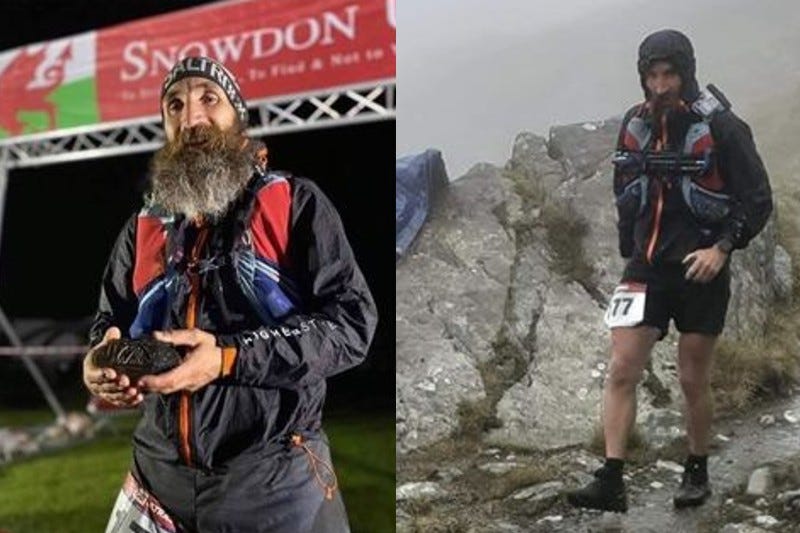
Flicking through YouTube videos changed Richard Wilcox’s life.
Struggling with mental health issues including post-traumatic stress disorder (PTSD), his marriage on the line and battling against addiction, the Army veteran stumbled upon a documentary about the Western States 100.
It inspired him to go from self-proclaimed couch potato to 100-mile ultra marathoner in less than a year.
This is the story of how Richard Wilcox became ‘Unbreakable’.
‘Nothing was helping - my life was a big storm’:
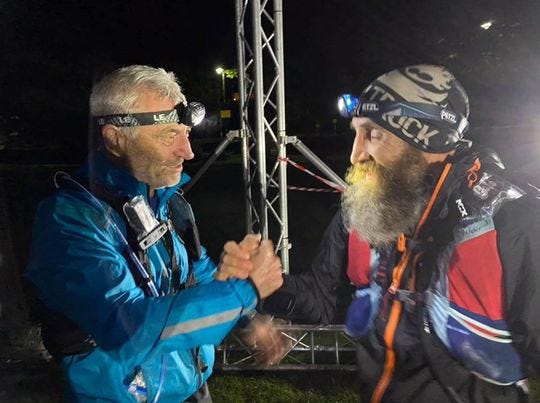
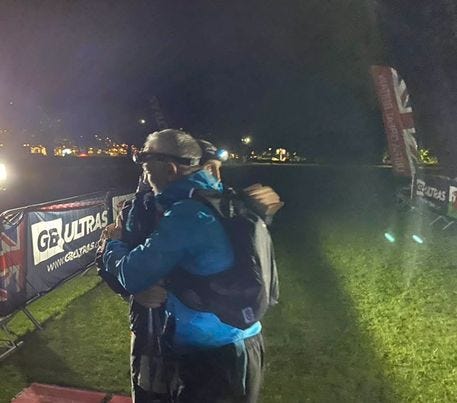
Like so many other people who arrive late to the realisation that running can be fun, Richard had previously used the activity simply to keep fit.
As an amateur boxer from the age of 12 and then during his time in the army, he’d run as part of a regimented routine.
When he left the forces, he “didn't really do much exercise or fitness”.
Instead, he fell into a sedentary lifestyle, ballooning to 18 stone despite only being 5ft 4ins tall.
Along the way Richard was struggling with mental health issues, including PTSD born out of his time in the army and from childhood trauma.
He told Running Tales: “About five years ago, those issues came to the forefront of my life and were quite debilitating.
“I struggled through, doing talking therapy and other therapies, but nothing really stuck.
“I tried and it helped. And then I'd fall back into things again. I'm quite an addictive sort of personality.
“It was a big storm really.”
Thanks for reading and listening to Running Tales. We couldn’t do this without your support - please back us to keep going by…
Things came to a head in August 2000 when he went on a family holiday. After having a “brilliant” time for most of the trip, Richard “really lost it” on the last couple of nights.
“My wife basically gave me an ultimatum and said, ‘you need to sort yourself out, we can't go on like this as it’s not fair on the children’.
“So I came back from that holiday thinking, is my marriage over? What's going to happen?
“And I just thought I needed to take a different approach.”
Time to get fit the Western States way:
Richard’s initial aim was to diet and lose weight, with the hope it would inspire him to go to the gym.
But it was a method he had tried “lots and lots of times before” without long-term success.
This time round he again started to lose weight, adopting a paleo diet, starting walking more and even working out.
But it was when Richard found a new addiction, in the form of running, that things really started to change.
One day, while watching videos on YouTube, he came across a documentary called ‘Unbreakable’ about the Western States 100 ultra marathon.
The film follows the story of four champion runners, Hal Koerner, Geoff Roes, Anton Krupicka and Kilian Jornet.
Also on Running Tales:
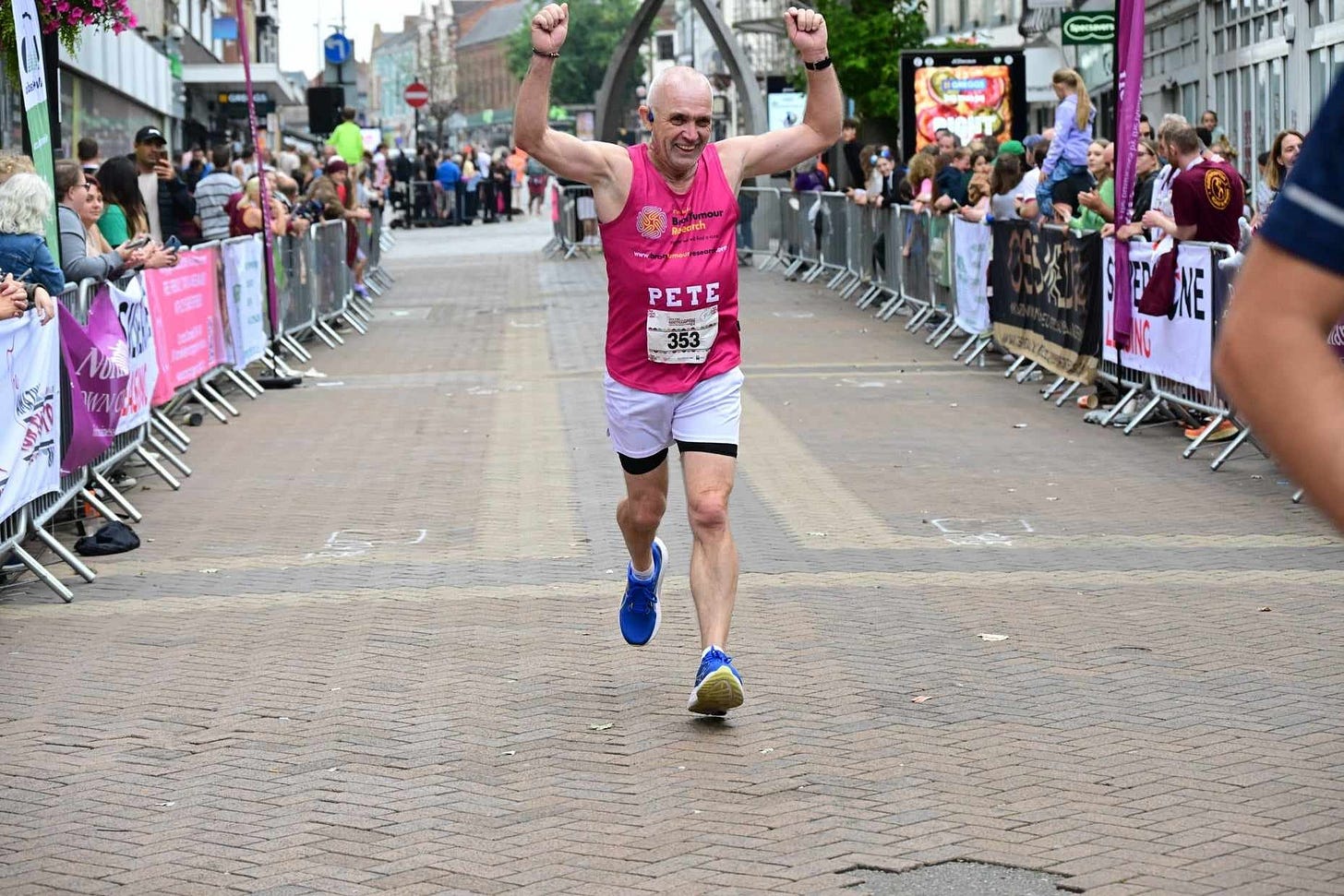
Richard was immediately struck by the freedom the runners found and how even those at the very front of the race “were more like friends than competitors, chatting as they ran”.
“They had this enjoyment which was just unreal,” he said. “I just started thinking about running 100 miles.
“I'd heard about ultras and some of my army friends had run them, but when I watched that documentary it changed me.”
Richard was also struck by the appearance in the programme of former Western States 100 champion Scott Jurek.
“I can remember watching Scott Jurek and he was introducing all the competitors who had got a chance of winning it.
“And he said his age - he was the same age as me. I just looked at him, this man who'd won all these races, and he looked youthful, he looked slim.
“Then I looked at myself and thought, ‘what have I done?’
“I thought if it can work for them, then it can work for me.”
Just like that Richard decided he was going to run 100 miles. And not only that, he was going to do it within a year.
“I’m an all or nothing type of guy,” he said. “I'm not going to do a Couch to 5k and be happy with that.
”I wanted it to change my life.”
Falling in love with ultra running:
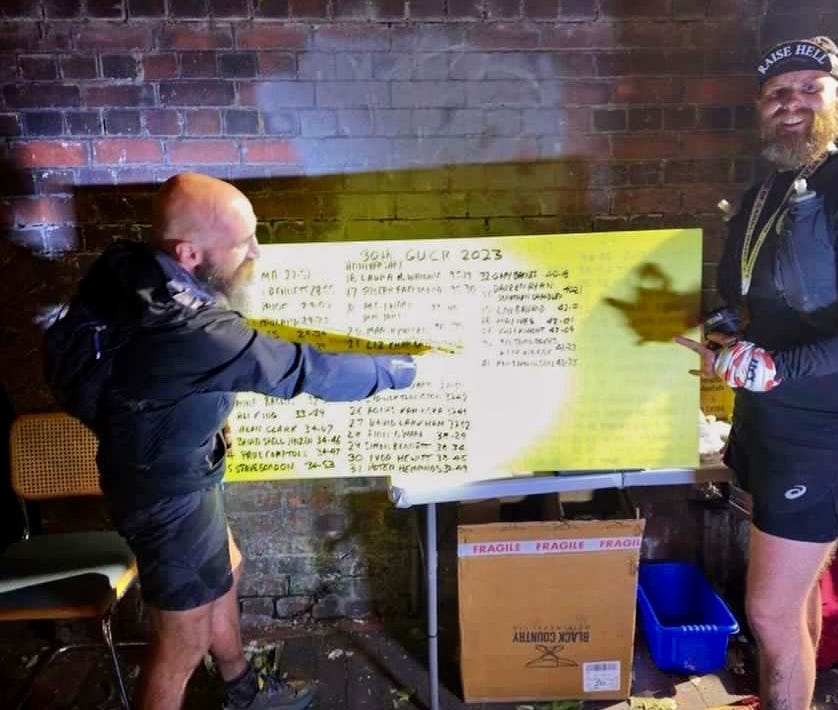
By September 2020, Richard had started walking but it was another two months before he was able to run.
The weight started to fall off. Within six months he had lost nine stone and was doing longer and longer runs.
Initially, and indeed up to a time when he was already covering distances of up to 32 miles on a run, Richard did not engage with the wider running community.
But slower he started to chat to more and more runners on platforms like Strava and Facebook, picking up tips and telling his own story.
It was through one of these conversations that he was able to find sponsorship for a 100-mile race of his choice.
Still only seven months into his journey, Richard decided to pick one of the toughest ultras out there - the Snowdon 100.
“It wasn't until then that I realised you can't just go and book yourself up to do an ultra and run it,” he said.
“For a lot of races, you've got to have at least run a 50-miler first.”
Richard quickly entered a 50-mile race in the Brecon Beacons. It was the first competitive event he had ever ran in.
He said: “It was a baptism of fire. I just winged it.”
He ended up completing the event in 16 hours: “Looking back at it now, I think I must have been crazy, but it was such a wonderful experience.”
Richard said throughout his of training he had “lived and breathed running” but it was during that race in the Brecon Beacons that he fell in love with ultras.
He enjoyed the lack of “pomp or ceremony” at the event, with participant numbers far more limited than they would have been at popular half- or full-marathon events.
“When I was starting to struggle, there were people ready to help,” he said.
“The mindset was totally different. I just loved everything about the community and about the running, and finding out why other people run as well.”
He put his success as an ultra runner down to many of the same traits that had seen him previously addicted to food, drink or drugs.
It is a persona he believes is common to many ultra runners.
“I call myself and a lot of people like me ‘the trauma people’. We come from that brokenness and choose ultras,” he said.
“The sport really resonates with those people.”
The beautiful loneliness of the ultra runner:
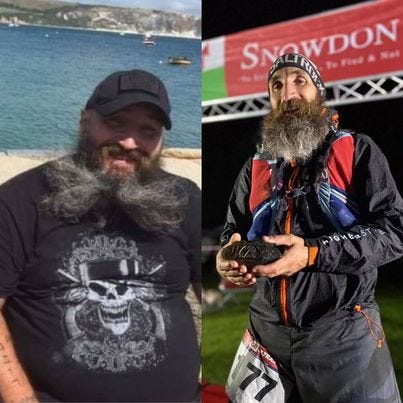
Just two months after he completed the 50-miler, Richard was on the start line of the Snowdon 100, the culmination of a year that had changed his life.
Lining up alongside seasoned ultra runners he was gripped by imposter syndrome and after starting off too quickly for such a long, challenging race he was soon struggling, with issues around nerves and possible food poisoning bringing on stomach issues.
He left the first checkpoint thinking he wasn’t going to be able to finish the race, but incredibly - despite feeling sick throughout - he somehow pulled himself across the first 50 miles of the race.
He said: “I'd done hard things in the army, but I think that was the hardest thing I'd ever done.
“I had all these doubts and thought I’d be going home as a big failure. As I was going up one track I was that slow that this little old lady with a stick and a backpack came past me.
“I was holding on to my sticks with my head down, and she tapped me on the back saying keep going, you’re doing great. And she just skipped up.”
As he dragged himself along, Richard slowly started to feel better and the miles disappeared before him.
Despite suffering from hallucinations due to a lack of sleep and getting lost more than once, he pulled himself closer and closer to the finish.
But there was one last challenge left.
As he neared the end, Richard suddenly realised time was running out for him to get there within the designated cut-off period.
Panicking, he started to run, pushing every last grain of energy out of his body as leapt over rocks and tree roots.
Despite his exhaustion, Richard managed to run nine-minute miles for each of his last two miles.
He trumphantly reached his goal before the cut-off… and found he had 55 minutes to spare.
In his muddled state he’d read his watch wrong and would have been able to finish easily without his final rush. But he had done it.
“I remember finishing and after all that effort I put in for that year, there were three people who watched me cross the finish line,” he said.
“One was myself, another was a fellow competitor and the third was the assistant race director.
“After all the work I put in for this big race that changed my life and to see me finish, there was one person there.
“And I just thought to myself, I wouldn't have wanted it any other way.
“That was my race. I didn't do it for people's accolades. I did it for myself, to change me.”
The anatomy of a 145-mile endurance race:
Earlier this year Running Tales spoke to Richard Wilcox and Ben Davies after they completed the 145-mile Grand Union Canal Race.
You can read that story here and listen to it here, while our YouTube video below gives a taster of what they went through.





What a motivational story. Recovering from fusion surgery and each day I read articles to keep me motivated after this excruciating long recovery.